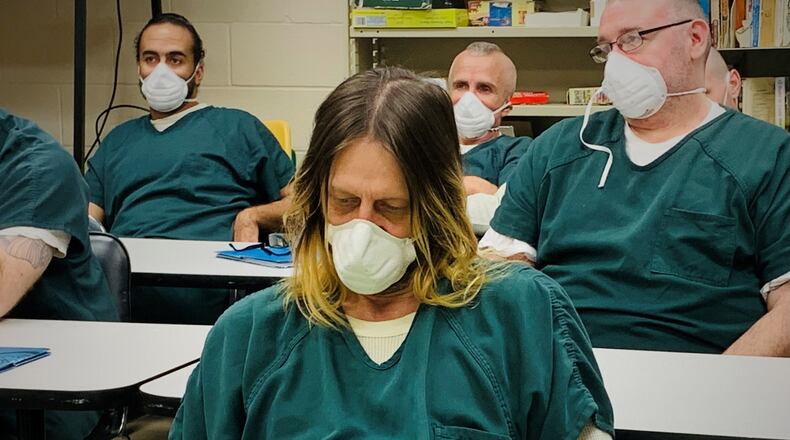Platt works with both men and women that are part of the Greene Leaf program, a six-month residential drug and alcohol program that provides intensive substance abuse counseling, cognitive restructuring, parenting, budgeting, and peer support services.
Volunteers provide them with children’s books, help them train their voice either in person or over the phone, and provide the parent with recording devices to read the stories aloud at no cost to the family. They then deliver an mp3 player or similar device to play the audio for their child, usually at the local library.
As part of the process, Platt reaches out to caregivers of the child, ensuring that person is willing to receive the recording on the child’s behalf.
“There’s a lot of misconceptions about folks on the inside,” Platt said. “We want to know each individual story.”
Jacob Balsley plans to read Dr. Seuss books and a few books of poetry to his three children, who range in age from 8 years old to five months.
“They’re all big daddy’s boys,” he said. “I want to be more a positive influence, especially (to) my oldest since he knows where I am, and I want to make sure he knows daddy still cares about him.”
Corbet Justice has no children, but plans to read to kids undergoing cancer treatment at St. Jude’s Children’s Hospital.
“It’s uncomfortable being in that situation. Chemo, radiation, the machines, it’s scary for kids,” Justice said. “For them just being able to listen to a story while it’s happening to them, might make them a little more comfortable.”
Justice lost his own wife after a five-year battle with cancer.
“She’d want me to do something like that,” he said.
Programs like this are not only good for the parent to reach their children while they’re away, they give children a sense of connection to a parent who is currently absent.
“Some kids fall asleep listening to them,” Platt said. “There’s power in audio recordings. You can’t replicate that.”
The program is popular among both male and female participants in the Green Leaf program, and some hope that this initiative will expand to other jails.
“They should do programs like this everywhere. We’re people just like everyone else,” Justice said. “You never know what’s going on with someone, so to be able to read to them, it might just do something for them.”
About the Author

